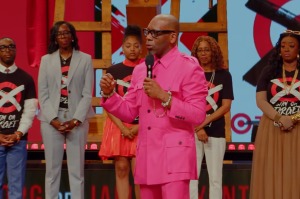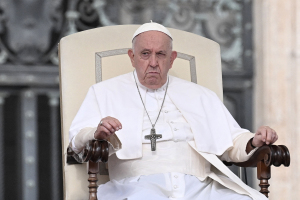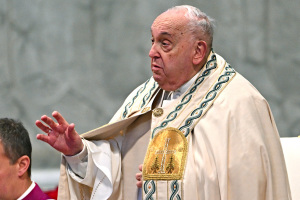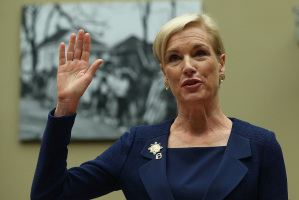Calvinism Debate: Southern Baptists Form Team to Figure Out How to Work Together
As debate over Calvinism has become heated in the Southern Baptist Convention, one of the denomination's key leaders announced this week that he has formed a group to figure out how to work together.
"There are extremes on both sides that have garnered attention and I want us to pull us back together to that group who say 'I may or may not be a Calvinist but I love Calvinists, I love non-Calvinists and we can and will do missions and evangelism together," Frank Page, president of the Southern Baptist Convention Executive Committee, said Thursday.
According to Baptist Press, the group – or advisory team – consists of 16 Southern Baptists, including Mark Dever of Capitol Hill Baptist Church, Timothy George of Beeson Divinity School, SBC President Fred Luter, R. Albert Mohler of The Southern Baptist Theological Seminary and Paige Patterson of Southwestern Baptist Theological Seminary.
Page, a former SBC president, said Thursday during a forum with Mohler at SBTS that it is not an "official" committee.
The debate over Calvinism in the SBC was reignited in recent years as some in the denomination felt there was a push by "New Calvinists" to have their views adopted.
(Read So. Baptists Divided Over Calvinism; Debate 'Salvation' Document)
Only a minority of Southern Baptists are Calvinists but a LifeWay Research survey conducted this year found that more people were signing on to the theological system. Sixteen percent of Southern Baptist pastors now say they are five-point Calvinists, up from 10 percent in 2006.
A majority of Southern Baptists (61 percent), meanwhile, indicated that they are concerned about the impact of Calvinism on the SBC.
Page doesn't believe the Calvinism debate is the biggest issue the denomination is facing. But he believes it's an important one that they must deal with.
"There's a frustration that's led to reactionary comments," he observed. "It's gotten to the point now that people don't remember history (of Baptists working together) and they're acting.
"We have some hyper-Calvinists (later corrected by Mohler as Calvinists who are hyperactive) on one hand who are really pushing hard, basically saying if you're not Calvinist, then you really don't belong in this Convention ... And then there are anti-Calvinists from whom I hear most often – probably because of my not-so-hidden belief in soteriology – who believe I shouldn't be here even talking to you (Mohler), that it's my job to root out Calvinists from this Convention."
Hoping for a change in tone and approach when discussing soteriology and other theological doctrines, Page said, "I think our conversation ought to be, first of all, a recognition that we have done wrong by talking at one another and about one another and not to one another."
It's contrary to the spirit of Christ, he lamented.
"I hope if anything that we can establish a dialogue that is Christ-like, that is filled with the Spirit of God, relearn history that Baptists have coexisted," he added.
"Once we do (recognize principles of Christ-likeness), we begin realizing some powerful things that we do have more in common than we might have thought ... and we begin to realize what really matters are the souls of lost men, women, boys and girls."
The advisory team, Page clarified, will not be seeking to redefine or alter the 2000 Baptist Faith & Message – a faith statement that all Southern Baptists ascribe to. The goal is more practical, he said.
"I'm simply trying to find a way to pull us together strategically, practically," he said, as he reaffirmed the faith statement.
Page told students at The Southern Baptist Theological Seminary that they need to recognize that they are living in a battleground and not a playground.
"Spiritual warfare is always something one must heed and the evil one is always seeking ways to divide," he warned. "Satan is always going to look for ways to continue to divide us, be it theological, be it methodological. And I think that's what's happening in our 21st century situation."
Other topics addressed during Thursday's forum included the plight of aging pastors and the decrease in missions giving as well as the future of a denomination.
Page believes that today, the "church has little influence and almost no power" and that denominations will also follow that path.
"Denominations such as our own, as much as I love what we're doing and trying to do, I think they will decrease in influence," he said.
With that, he stressed the important role that the local church must play.
"The denomination is going to have to change into not being something that churches look to for leadership but I think the Convention is going to have to look to churches for leadership. The headquarters of the Southern Baptist Convention is not Nashville, Tenn.; it's in the local church."





























